Monarch Halfway House
2310 West Broadway
Muskogee, OK 74401
Muskogee, Oklahoma
918-682-7210
Get Help Now - 918-739-0804
 Who Answers?
Who Answers?
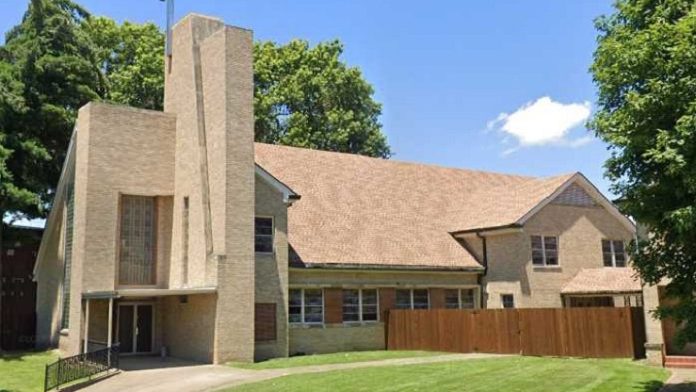
Amenities
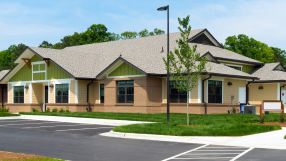
Private Rehab
Private drug rehab provides a comfortable, secure environment that allows you to focus on doing the work to ge...t your life back on track. Benefits include a higher staff-to-client ratio, increased one-on-one time with therapists and healthcare providers, private rooms for clients, and customized forms of therapy.Read More

Rec Room & Activities
Recreational therapy uniquely combines therapeutic interventions with an activity, like horse-riding, hiking, ...wilderness therapy, basketball, tennis, or a full workout. Benefits of recreational therapy include providing a healthy way to work through the emotions of recovery, learning to build and maintain relationships, improving communication skills, and building self-esteem.Read More

Residential Setting
Residential drug rehab provides the comforts of home with the therapeutic support needed to successfully recov...er. Benefits of an inpatient program include increased safety, a higher success rate, and the time and distance given to focus on recovery. Residential drug rehabs are often the preferred method of treatment, as they can be tailored to meet specific needs, offer focused therapeutic care, and provide the necessary tools to sustain recovery.Read More
Addiction Treatment Programs
Adult Program
Alcoholism
Drug Rehab
Opioid Treatment
Women's Rehab
Teen & Adolescent Program
Adult Program
In Oklahoma, you’ll find a variety of addiction treatment programs. Each adult program in Oklahoma is tailored to meet the individual where they are and help them find a healthy path to recovery.Alcoholism
People need tools to fight against addiction, and that’s exactly what alcohol rehab in Oklahoma provides. You’ll get the tools you need to address the physical, mental, and relational issues that are contributing to alcohol abuse, so you can move forward in recovery.Drug Rehab
To address the issues of addiction, each drug rehab in Oklahoma is tailored to meet the individual’s needs. Treatment may occur in a residential or outpatient setting, and may last from a few days to several months.Opioid Treatment
Opioid rehab in Oklahoma gives individuals the opportunity to achieve long-term sobriety. Through specialized treatment, participants receive the support and therapies they need to address addiction issues and learn how to live independent of opioid use.Women's Rehab
Women’s rehab in Oklahoma takes into consideration biology, stress, stigmas, and social norms of women. These programs help women overcome the challenges surrounding each of these aspects of their lives and learn to live a sober lifestyle.Teen & Adolescent Program
Treatment plans at a young adult program in Oklahoma focus on the unique challenges of young adults in their teens and twenties. This includes navigating independence while making healthy choices and addressing substance use disorder issues.Levels of Care
1
Inpatient Rehab
Inpatient rehab in Oklahoma offers 24/7 care while you live at the rehab facility. Also referred to as residen...tial treatment, this level of care typically involves group and individual counseling as well as medication management.Read More
2
Aftercare & Alumni Program
Achieving sobriety is the goal of rehab. Maintaining sobriety is the goal of aftercare rehab. Oklahoma afterca...re rehab services give you access to support services that help you overcome hurdles as you re-enter life. Life coaches, counselors, and 12-step support groups are often key components of aftercare. These services are often needed for a year or more after initial treatment.Read More
3
Sober Living
Oklahoma sober living usually lasts for a few months. During this time, you’ll live in a private home with o...thers who are in recovery. Each resident is required to follow a structured schedule and strict house policies. This provides a stable environment as you learn how to live life free of drugs or alcohol.Read More
Accreditations

CARF
Insurance
 Payment Plans & Financing
Payment Plans & Financing
For those who are underinsured or uninsured, paying the total cost of a rehab program up front is not feasible.... Fortunately, many alcohol and drug rehabs make financing available to potential clients through private loans, in-house payment plans, or partner lenders. You can choose a finance package that lets you start treatment immediately and pay for it later.Read More
 Private Insurance
Private Insurance
If you have private insurance, you may be able to use it to help cover the cost of alcohol and drug rehab in O...klahoma. The amount covered may depend on your policy and the treatment center's network status. You may be left with some costs like a co-payment, or co-insurance. Check with your insurer for more information.Read More
 Self-Pay Options
Self-Pay Options
In Oklahoma, you have the option to pay for alcohol and drug rehab in out-of-pocket, also known as self-pay or... private pay. This option covers all levels of care, including detox in Oklahoma, and inpatient rehab in Oklahoma because you are not restricted by the limitations of private insurance, or state-run programs.Read More
 Sliding Scale Payment
Sliding Scale Payment
If cannot afford the full cost of alcohol and drug rehab in Oklahoma, a sliding scale payment plan may be an o...ption for you. This way, you can access all levels of care, including detox, inpatient rehab, and more. To qualify for this treatment discount, you must complete an application and provide supporting financial documentation.Read More
Contact Monarch Halfway House

Location Details
Other Nearby Facilities
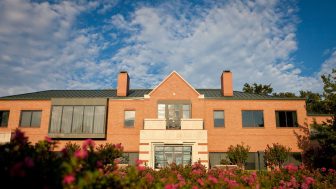
Laureate Psychiatric Clinic and Hospital
6655 South Yale Avenue
Tulsa, OK 74136
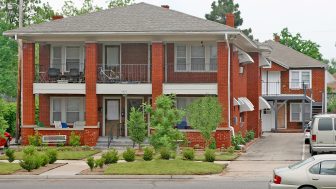
Into Action Sober Living
1414 Northwest 25th Street
Oklahoma City, OK 73106

Firstep Mens Recovery Program
11601 West Stanley Draper Drive
Oklahoma City, OK 73165
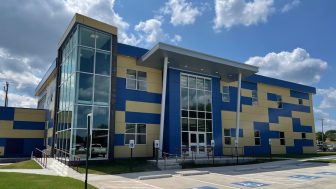
Green Country Behavioral Health Services
619 North Main Street
Muskogee, OK 74401